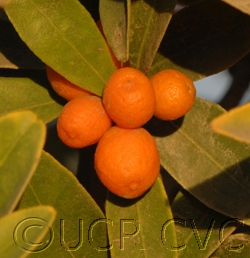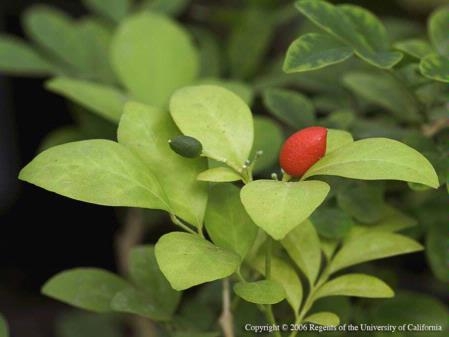- Author: Rose Marie Hayden-Smith
Invasive shot hole borers (ISHB) are tiny beetles that are posing a significant threat in Ventura County and beyond.
There's new information provided in a recent blog post that appeared on website of the Channel Islands Chapter of the Community Association Institute in January 2021. Wayne Farnsworth of
These pests are becoming established in parts of Ventura County. Farnsworth and Oliver note that "Unlike many insect pests, invasive shot hole borers infest a wide variety of tree species, including many common ornamentals, avocados and California natives. Sycamores and box elders are among their favorites, and they also attack live oaks, valley oaks and alders, all of which are abundant in our area."
Per UC ANR, invasive shot hole borers are
"two closely related species of small, non-native, beetles that bore into trees. ISHB introduce fungi that cause a tree disease called Fusarium dieback (FD). The ISHB-FD pest-disease complex is responsible for the death of thousands of trees in Southern California and poses an imminent threat to the integrity of our urban and natural forests.
Invasive shot hole borers attack a wide variety of tree species including avocados, common landscape selections, and California native species in urban and wildland environments."
You can learn more about ISHB at the UC ANR Integrated Pest Management website.
As Julie Di Blasio reported last year, "...invasive shot hole borer (ISHB) infestations have been identified in Ventura County since 2015 but have not significantly spread. Discovery of the pest/disease complex was found in late 2018 in the urban forest of Meiners Oaks. Citizens Journal recently published an article about the removal of a tree that was at risk for amplifying the local infestation and causing potential other community harm."
UCCE Ventura has been collaborating to address ISHB with UC insect, disease, education specialists, Ventura County Agricultural Commissioner, CAL FIRE, US Forest Service, several other agencies and non-government organizations. We are locally active in monitoring and outreach. Ventura County Master Gardeners Invasive Pests Outreach Group augments our work through their efforts to educate the public, firewood users and vendors."
Image credit: Akif Eskalen, UC Davis/UC ANR

- Author: Cris L. Johnson

The University of California, Agriculture and Natural Resources (UC ANR) division is celebrating 100 years of service and science to the state of California. In May 2014 UC ANR will mark the 100th anniversary of the Smith-Lever Act, legislation that created Cooperative Extension, a nationwide system of community-based education, established as part of each state's land grant university.
The Ventura County UC Cooperative Extension is our local component of this structure where we serve the community through youth development programs, agricultural outreach and research, home gardening programs, natural resource education and projects, environmental horticultural and landscape expertise. We also work in conjunction with the Hansen Agriculture UC Research and Extension Center (REC) in Santa Paula where agricultural research projects and educational outreach programs are conducted in a dedicated agricultural setting.
Join us at our 100th anniversary celebratory meeting in Oxnard and learn more about the extension and research activities.
Date: January 29, 2014
Time: 8:00 am to Noon
Location:
Courtyard by Marriott
600 E. Esplande Dr.
Oxnard
RSVP by January 20, 2014 to 805-525-3839, ext. 214 or sbmiller@ucanr.edu or respond online.
- Author: Cris L. Johnson

Firewood borne diseases and pests can cause devastating damage to trees and huge financial losses to growers and the agricultural community. The simple yet important act of keeping firewood purchases local and not transporting to public areas can help prevent invasive pests such as the Asian Citrus Psyllid (ACP), gold spotted oak borer, emerald ash borer and others from gaining a foothold in your community.
For more useful information about this important effort, visit the California Firewood Task Force website. The Farm Bureau Pest Issues webpage has a list of invasive pests and diseases that could threaten Ventura County. Also check out a special presentation on ACP at the UCCE ACP Workshop webpage.
- Author: Chris M. Webb
UC ANR’s Spanish News Service website brings Agriculture and Natural Resource information to California residents who are fluent, and more comfortable learning, in Spanish. This is a vital service for all Californians as many of the issues and challenges we face together can only be solved by all of us working together.
This highly organized, visually appealing, and easy to navigate site provides a great deal of information on many important topics. The information can be accessed by audio, video, articles, and blogs.
Topics include:
- Invasive species
- Water quality
- Nutrition and fitness
- Child development
- Preventing obesity and overweight
- Reducing the risk of diabetes
- Natural resources
- Recovering from a natural disaster
- Integrated Pest Management (IPM)
- Preventing and recovering from wildfires
- Money management
- Gardening
- And much more
A similar site is available in English.
- Author: Chris M. Webb
Asian citrus psyllid, has not recently received much attention in the news media. However the pest, and the deadly bacterial disease it can carry, are still of great concern.
The Asian citrus psyllid (ACP) has now been found in eight California counties. Quarantines are in place. The psyllid by itself is not much of a problem; it is its ability to spread the fatal disease that has the potential to devastate both the California citrus industry and backyard citrus throughout the state.
Huanglongbing (HLB) is the name of the disease ACP can carry. Citrus and closely related plants are at risk. The disease is transmitted between plants by the psyllid. The psyllids transmit the disease to healthy plants and trees. After feeding on an infected plant, the ACP will transmit HLB to every other plant it feeds on.
While much outreach has focused on citrus trees, it is important to remember there are other plants that can host both ACP and HLB. This list from the University of Florida provides both the common and Latin plant name for many known hosts. Hosts include: curry leaf, ornamental orange-jasmine, and all the varieties of citrus, including kumquat, mandarin, grapefruit, orange and all of their hybrids.
Please remember to check your citrus and closely related plants regularly for signs of ACP or HLB. General information about this pest disease complex can be found on this section of the CDFA website. For local updates, the Ventura County ACP Task Force is a great source of information.





